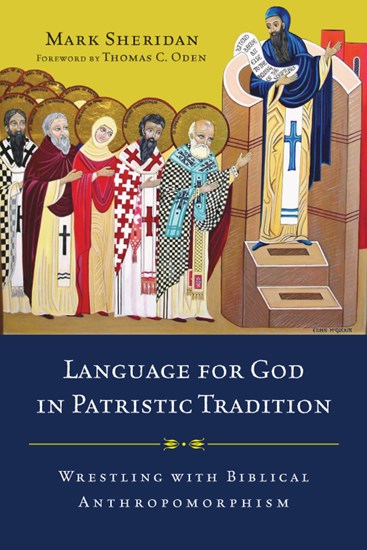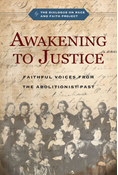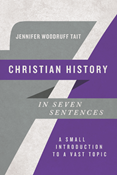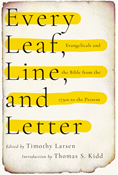
|
Language for God in Patristic Tradition
ebook
|
- Length: 256 pages
- Published: December 03, 2014
- Imprint: IVP Academic
- Item Code: 9700
- ISBN: 9780830897001
-
Other Retailers:
Amazon*
*affiliate partner
-
paperback
Criticism of myth in the Bible is not a modern problem. Its roots go back to the earliest Christian theologians, and before them, to ancient Greek and Jewish thinkers. The dilemma posed by texts that ascribe human characteristics and emotions to the divine is a perennial problem, and we have much to learn from the ancient attempts to address it.
Mark Sheridan provides a theological and historical analysis of the patristic interpretation of Scripture?s anthropomorphic and anthropopathic language for God. Rather than reject the Bible as mere stories, ancient Jewish and Christian theologians read these texts allegorically or theologically in order to discover the truth contained within them. They recognized that an edifying and appropriate interpretation of these stories required that one start from the understanding that "God is not a human being" (Num 23:19). Sheridan brings the patristic tradition into conversation with modern interpreters to show the abiding significance of its theological interpretation for today.
Language for God in Patristic Tradition is a landmark resource for students of ancient Christian theology. Wide-ranging in scope and accessible in its analysis, it demonstrates that those engaged in theological interpretation of Scripture have much to gain from studying their forebears in the faith.
"Language for God in Patristic Tradition has the distinction of being both a marvelously clear introduction and a sophisticated exploration of the intellectual world and work of early Christianity in relation to one of the thorniest problems in Scripture: the use of human language—often violent language—to describe God. The book is suitable for students, scholars and thoughtful inquirers alike. It is lucid, interesting and instructive—illuminating a clear description of the history of the problem with fascinating examples of ancient, learned interpreters at work in a conversation that continues today."
"At its core this masterful introduction to the patristic language about God by Mark Sheridan is about interpreting Scripture in a manner worthy of God. This was the primary concern and challenge of the ancient Christian interpreters who interpreted Scripture primarily in a theological sense—which is what language about God should do. Our modern concern has always had more to do with a historical consciousness of the text of Scripture and so we find much of the ancient approach to Scripture unintelligible and enigmatic. This text brings us into the mindset of the Fathers' approach to interpretation in order to help us read with them the mind of the divine author of Scripture. This text should be required reading for anyone interested in the history of interpretation in the early church."
"One major obstacle modern people face in comprehending patristic literature is the ideas and language ancient Christian writers employed as they read the Bible and interpreted the Bible's statements and stories about God. In Language for God in Patristic Tradition, Mark Sheridan explains clearly and cogently both the "why" and the "how" of the church fathers' language of biblical anthropomorphism. He employs plenty of primary source material as he does so. Sheridan's immense learning is expressed in lively, accessible prose that will encourage and educate readers new to patristic exegesis while refreshing—and likely deepening—the perspectives of those more familiar with the world of the church fathers. Highly recommended."
"While there are a number of books written on the ancient Christian use of the early Fathers, Sheridan's offers critical insights on the theological background for early Christian exegesis that places it among the more balanced and erudite volumes on this subject."
"How do we speak about God in human language? Mark Sheridan's Language for God in Patristic Tradition takes a historical and hermeneutical approach to answer this question. Using the patristic hermeneutical principles that the meaning given to a biblical text must be worthy of God and useful to people as guiding motifs, he deftly leads the reader through a multitude of patristic texts dealing with problem passages in the Bible. Those unacquainted with patristic exegesis will be introduced to and guided in the reading of these texts."
"A superb study that sheds new yet ancient light on both the early Church Fathers and the cruxes and crises of modern biblical interpretation. A must for academic libraries and thoughtful readers."
"Mark Sheridan has truly given the world a gift with his recent publication, Language for God in Patristic Tradition, published by IVP Academic. . . . With this book, Sheridan expertly navigates the reader through the interpretive strategies of the early church Fathers as they wrestled with our sacred texts."
"Language for God in Patristic Tradition is clearly written, well organized, and easy to follow. While it is best suited for undergraduate and seminary courses on early Christian interpretation, scholars and interested laypeople alike also stand to benefit. Sheridan includes a helpful glossary of terms as well as an appendix outlining general ancient Christian hermeneutics. . . . This work is a helpful introduction to theology and interpretive methods of the church fathers."
CONTENTS
Foreward by Thomas C. Oden
Note of Gratitude
Abbreviations
Introduction
1. God is not like Humans
2. The Philosophers? Critique
3. The Hellenistic Jewish Interpretation
4. The New Testament
5. Early Christian Writers
6. Three Specific Cases
7. The Special Case of the Psalms
8. A Comparison of Ancient and Modern Interpretations
Appendix: Ancient Christian Hermeneutics: The Presuppositions, the Criteria and the Rules Employed
Biographical Sketches of Early Christian Writers and other Significant Authors
Select Bibliography
Name and Author Index
Subject Index
Scripture Index













